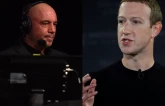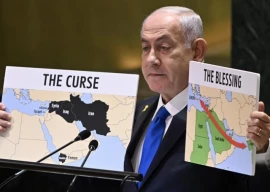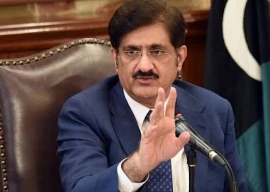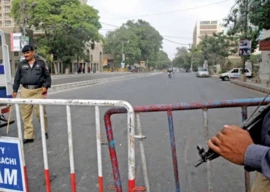
Despite Pakistan being the seventh largest country in terms of internet users, with over 138 million people accessing 3G/4G services, the population remains excluded from important discussions on freedom of expression, access to online information and necessary reforms in governance of digital media platforms, experts pointed out.
Millions were utilising digital platforms, but the broader public was not involved in such critical debates, they said at a multi-stakeholder national consultation session, jointly organised by Unesco and the Institute for Research, Advocacy and Development (IRADA).
The discussion was aimed at formalising constructive dialogue on Unesco guidelines for the governance of digital platforms to create a conducive environment for public discourse on freedom of expression, access to online information and governance reforms in the digital media platforms.
The participants highlighted the need for digital and information literacy and collective action for realising the digital rights.
While delivering his inaugural speech, Unesco Pakistan Office Officer-in-Charge Antony Kar Hung Tam emphasised the urgent need to tackle disinformation and harmful content online while safeguarding fundamental rights, particularly the freedom of expression and access to information. "To achieve this balance, shared responsibilities and collaborative efforts from all stakeholders are needed," he said.
In his speech, Ministry of Information and Broadcasting's Centre of Digital Communication Director General Muhammad Shahzad said that balancing hate speech and disinformation with the legitimate discourse should be the utmost priority of stakeholders.
Pakistan Telecommunication Company's Web Analysis Division Director General Ahmed Shamim Pirzada, in his remarks at the event, stressed how concerns over digital governance were a global issue and not just limited to Pakistan, "which is why we must work together to find solutions".
The national consultation was aimed at forming a multi-stakeholder advocacy forum to advocate for the implementation of recommendations gathered through provincial consultations, along with developing an evidence-based approach to carve out a path for global dialogue complemented by regional-specific concerns over the governance of digital platforms.
The consultation process was preceded by four provincial consultative sessions that helped collate recommendations from various stakeholders with respect to internet freedom, human rights and access to information. These were further discussed and refined at the national-level consultation.
Through the multi-stakeholder consultations, Unesco and IRADA have collected recommendations and developed a roadmap for effective implementation of the Guidelines for Governance of Digital Platforms, creating an environment to ensure fundamental freedoms and the digital rights of citizens.
The Unesco guidelines on digital platforms emphasise the need for an enabling environment to safeguard freedom of expression, access to information and other human rights while ensuring a safe and open digital space.
The guidelines outline the role of various stakeholders – states must respect and protect human rights, digital platforms should uphold human rights, and intergovernmental organisations, civil society, media, academia and the technical community also play their crucial roles.
The guidelines propose a multi-stakeholder, human rights-based approach to governance, incorporating self-regulatory, co-regulatory and statutory mechanisms. They also highlight media and information literacy and respect for cultural diversity as shared responsibilities, and recommend that the platforms should have processes for content moderation, risk assessment and accountability.
Representatives of the academia, civil society, digital media and journalists discussed and presented recommendations for a national-level regulatory framework that could align with the Unesco guidelines.
The recommendations included increased cooperation between stakeholders, enhancing media and information literacy, and better content moderation and curation by the digital media platforms.

1736541297-0/Untitled-design-(59)1736541297-0-405x300.webp)



1727142053-0/Jacob-Erodi-(3)1727142053-0-165x106.webp)

1736498386-0/Express-Tribune---News-Desk-(6)1736498386-0-270x192.webp)
















COMMENTS
Comments are moderated and generally will be posted if they are on-topic and not abusive.
For more information, please see our Comments FAQ